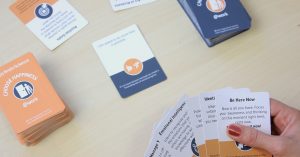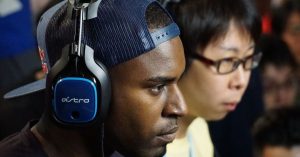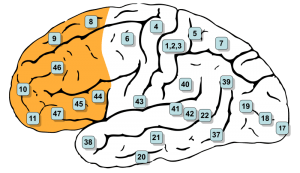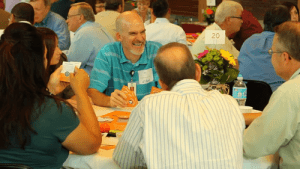I believe you can play your way to a happy, thriving team, which results in boosted performance, creativity, resilience, success, and even pay. Read this article to find out how.
Can you play your way to higher pay?


I believe you can play your way to a happy, thriving team, which results in boosted performance, creativity, resilience, success, and even pay. Read this article to find out how.

Mastery–feeling competent, and feeling your ability improve–is one of the most important human motivators, according to research. Read this article to find out how you can boost your Mastery at work.

Please think of the last time you were pleasantly surprised. What happened in your brain? Science suggests your brain released more dopamine and your brain’s reward centers became more active because you didn’t expect what happened. What does this have to do with ‘gamification’ and leadership?

(Note: This is part 3 in a series on Gamification: Embedding elements of game playing to the workplace to encourage engagement . If you missed the first two posts, read Part 1: Part 1 Autonomy and Part 2 Relatedness) “Arrrrgh…OK just one more time!” If you’ve ever muttered something like this playing a video game–as I read more…

Self-determination Theory suggests that Autonomy, Relatedness, and Mastery are vital human motivators, whether we are talking about working in the office or playing a video game. Every brain in the world is different, but for most of us most of the time, we would rather play games with others than alone. As the title of a just-published study puts it, “Fun is more fun when others are involved”. Science confirms, time and again, that relatedness–connecting to others and feeling something in common–is a key internal motivator.

I first thought that my game design background and using brain science to thrive at work had little to do with each other; wow was I wrong! It turns out, leaders have a lot to learn from game designers. When I left my career in game development to found Happy Brain Science so I could read more…

First, I want to be direct: I am thrilled to announce that TODAY (March 16, 2016) Happy Brain Science is launching Choose Happiness @ Work, our card game that teaches the science of thriving. Please watch the video below of people playing the game and talking about it.

“Why games? Why are games a good way to teach something?” I asked to kickoff the breakout session after my keynote at the International Game Developer’s Association (IGDA) Leadership Summit. I was honestly blown away at the amazing answers: “All games teach.” “Because play is how we naturally learn, it’s how we’ve always learned throughout human history, read more…

Enter Will Lewis, the Lead Community Organizer for the Portland Indie Game Squad (PIGSquad) and a co-director in Pixel Arts Game Education, reaching and teaching to so many game-interested minds in the Portland area. I’ve been working with Scott on his game-in-progress, codename: “Choose Happiness,” for the past few months, providing coaching and feedback on read more…

Writing is like driving at night. You can only see as far as the headlights, but you can make the whole trip that way.–E. L. Doctorow It turns out that writing a game is also like driving at night (E. L. Doctorow’s analogy I like so much). You don’t know how it’s going to turn read more…